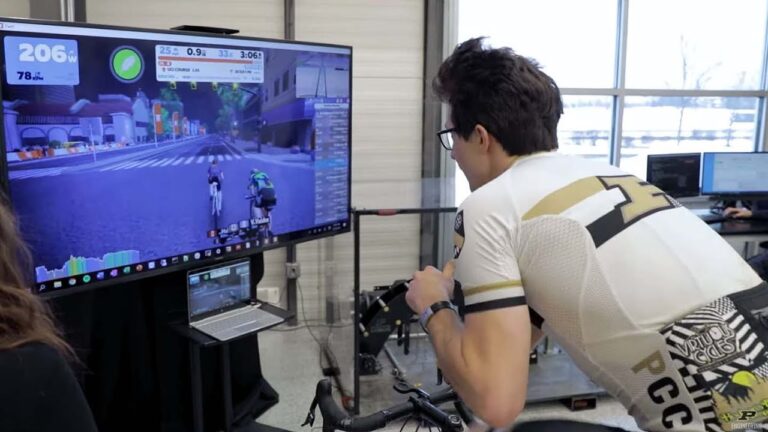Pediatric Physician Assistant: Job Description and Salary

Pediatric Physician Assistant Job Description Template
A Pediatric Physician Assistant Job Description A pediatric physician assistant is a healthcare professional who works under the supervision of a licensed pediatrician to provide medical care to infants, children, and adolescents. The primary responsibilities of a pediatric physician assistant include conducting physical examinations, diagnosing illnesses and injuries, ordering and interpreting diagnostic tests, prescribing medications, and developing treatment plans. They also assist in performing procedures such as suturing wounds, administering vaccinations, and providing basic medical care. Pediatric physician assistants also play a crucial role in educating patients and their families about proper healthcare practices, disease prevention, and management of chronic conditions. They may offer counseling on issues such as nutrition, exercise, and behavioral development. In addition to clinical duties, pediatric physician assistants are often required to maintain accurate medical records, collaborate with other healthcare professionals, and participate in medical research or academic activities. The job of a pediatric physician assistant requires excellent communication skills, as they must effectively communicate with patients, their families, and other members of the healthcare team. They must also possess strong critical thinking and problem-solving abilities to make accurate diagnoses and provide appropriate treatments. Overall, pediatric physician assistants are essential members of the healthcare team, contributing to the well-being and development of children. They provide compassionate and comprehensive medical care to pediatric patients, ensuring their health and promoting their overall growth and development. Effective communication and critical thinking are crucial skills for pediatric physician assistants to excel in their profession.Pediatric Physician Assistant Responsibilities
Pediatric Physician Assistant Requirements
- Completion of a Bachelor’s degree
- Completion of an accredited physician assistant program
- Passing the Physician Assistant National Certifying Examination (PANCE)
- Licensure as a physician assistant in the state where you plan to practice
- Completion of a pediatric rotation or elective during the physician assistant program
- Continuing education to maintain certification and licensure
- Strong communication and interpersonal skills
- Ability to work with children and their families
- Knowledge of pediatric medicine and conditions
- Ability to collaborate with other healthcare professionals in a pediatric setting
How Much Does A Pediatric Physician Assistant Make?
Pediatric Physician Assistant Salary
| Experience Level | Annual Salary |
|---|---|
| Entry Level | $80,000 – $100,000 |
| Mid-Career | $90,000 – $120,000 |
| Experienced | $100,000 – $150,000 |
| Senior Level | $120,000 – $180,000 |
A Pediatric Physician Assistant’s salary varies depending on their level of experience. Entry-level pediatric PAs can expect to earn an annual salary between $80,000 and $100,000. As they gain more experience and move into mid-career positions, their salary range increases to $90,000 – $120,000 per year. Experienced pediatric PAs can earn between $100,000 and $150,000 annually, while those in senior level positions can make $120,000 – $180,000 per year. These salary ranges may vary depending on factors such as location, specialty, and the specific healthcare facility.
Pediatric Physician Assistant Salaries by Country
Top Paying Countries for Pediatric Physician Assistant
| Country | Average Salary (USD) |
|---|---|
| United States | $100,000 |
| Canada | $90,000 |
| Australia | $85,000 |
| United Kingdom | $80,000 |
| Germany | $75,000 |
Below is a list of the top paying countries for Pediatric Physician Assistants. These countries offer competitive salaries for professionals in this field. It is important to note that these salary figures are approximate and can vary based on factors such as experience, qualifications, and location within the country. Pediatric Physician Assistants in the United States earn an average salary of $100,000, making it the highest paying country on this list. Canada, Australia, United Kingdom, and Germany also offer attractive salary packages for Pediatric Physician Assistants, ranging from $75,000 to $90,000. It is advisable for professionals in this field to consider these countries for potential career opportunities and attractive compensation packages.
A video on the topic Pediatric Physician Assistant
Video Source : Med School InsidersInterview Questions for Pediatric Physician Assistant
1. What made you decide to become a pediatric physician assistant?
I have always had a passion for working with children and wanted a career that would allow me to make a positive impact on their health and well-being. Becoming a pediatric physician assistant seemed like the perfect way to combine my love for children with my interest in medicine.
2. How do you approach building a rapport with your pediatric patients?
Building a strong rapport with pediatric patients is essential for providing quality care. I take the time to establish a friendly and comforting environment, using age-appropriate communication techniques. I actively listen to their concerns and involve them in their treatment plan, earning their trust and making them feel comfortable in my care.
3. How do you handle difficult or resistant pediatric patients?
When dealing with difficult or resistant pediatric patients, I employ patience, empathy, and understanding. I try to identify the underlying reasons for their resistance and address their concerns. I may use distraction techniques, offer incentives, or involve the child’s parents in the process to make the experience more positive and cooperative.
4. How do you educate parents about their child’s condition or treatment plan?
Education is a crucial aspect of pediatric care. I explain medical concepts in simple terms, ensuring parents understand their child’s condition or treatment plan. I encourage questions and provide written materials or reliable resources for further information. I also emphasize the importance of compliance and follow-up care to optimize the child’s health outcomes.
5. Can you describe a challenging case you have encountered and how you managed it?
One challenging case I encountered involved a child with a complex chronic condition. The child required multiple specialists and a comprehensive care plan. I coordinated with the different specialists, ensuring clear communication and collaboration. I also provided ongoing support and education to the child and their family, helping them navigate the complexities of the condition. By working as a team, we were able to improve the child’s quality of life.
6. How do you stay up-to-date with the latest advancements in pediatric medicine?
I believe in the importance of lifelong learning and staying current with advancements in pediatric medicine. I regularly attend medical conferences, participate in continuing education courses, and read medical journals to stay informed about the latest research and treatments. I also collaborate with other healthcare professionals and engage in professional networks to exchange knowledge and experiences.
7. How do you ensure patient confidentiality and privacy in your practice?
Patient confidentiality and privacy are paramount in healthcare. I strictly adhere to HIPAA regulations and maintain robust security measures to protect patient information. I only share patient information with authorized individuals involved in the care process, and I educate my staff on the importance of confidentiality. I also maintain open lines of communication with patients and their families, ensuring their trust and comfort in sharing sensitive information.
8. How do you handle the emotional aspects of working with sick children and their families?
Working with sick children and their families can be emotionally challenging. I strive to provide compassionate care and support, acknowledging their emotions while remaining professional. I actively listen to their concerns, offer empathy, and connect them with appropriate resources such as support groups or counseling services. I also rely on self-care practices to manage my own emotions and prevent burnout.
9. Can you describe your approach to interdisciplinary collaboration in pediatric care?
I believe interdisciplinary collaboration is crucial in providing comprehensive pediatric care. I actively communicate and collaborate with other healthcare professionals involved in a child’s care, such as pediatricians, nurses, therapists, and specialists. I share relevant information, seek their input, and work together to develop a coordinated treatment plan. This approach ensures the child receives holistic care and maximizes their health outcomes.
10. How do you handle situations where a child’s parents have differing opinions on the treatment plan?
In situations where parents have differing opinions on the treatment plan, I aim to foster open communication and understanding. I listen to their concerns and try to find common ground. I provide evidence-based information to support my recommendations and explain the potential risks and benefits of different treatment options. Ultimately, I strive to reach a consensus that prioritizes the best interests of the child while respecting the parents’ input.






